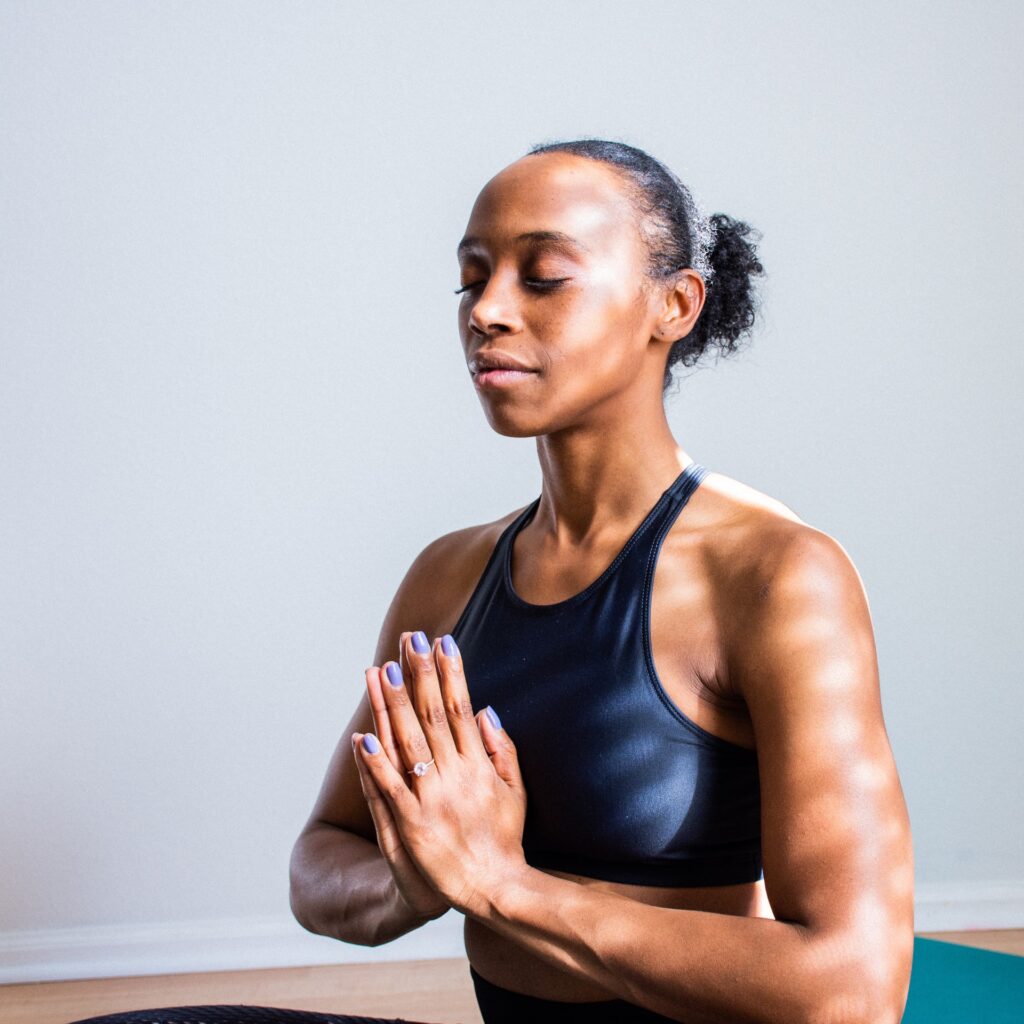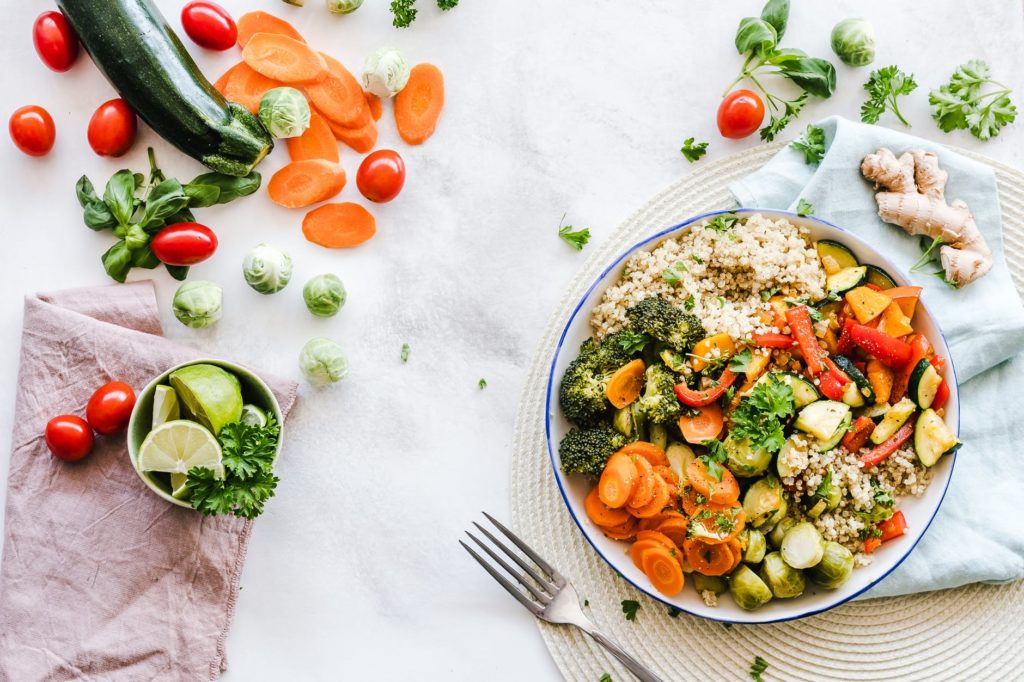
Long-term health is the result of proactive, preventive, and healthy choices that impact your health today, tomorrow, and for the rest of your life. Yet, practicing healthy habits is no accident. It is a result of a consistent commitment to take care of your body and mind. To make sure you have both physical and emotional wellbeing as you age, start by making healthier choices every day.
Here are six healthy habits that will help you be a healthy, vital older person.
1. Regular exercising

Humans are designed to move. The more active we are, the healthier we are as well. Movement is key for loading the bones and the muscles and for maintaining bone and muscle density. What’s more, besides taking good care of your muscles and bones, exercising also helps control weight and reduces the risk of high blood pressure, heart disease, and diabetes.
What’s more, staying active can also positively impact your mental health. When you exercise, your brain releases endorphins, which are chemicals that reduce your perception of pain and trigger a positive feeling in the body.
Regular exercise is often referred to by medical experts as a” fountain of youth.” So, keep on moving to remain “young” even as you age.
2. Having a balanced diet

A balanced diet is another crucial thing to stay healthy and prevent medical issues. Good nutrition is key to optimal health.
Yet, make no mistake, good nutrition doesn’t mean diet deprivation. You don’t have to go hungry to maintain health. There’s no such thing as a healthy weight that is true for everybody.
Each person has an ideal weight, and you should aim towards that but aim to achieve it through good nutrition.
What does good nutrition actually mean? Good nutrition means having a diet that includes fruits, veggies, nuts, and healthy fats. Plus, a healthy diet means avoiding sugary drinks and fast-food snacks.
Moreover, many nutritionists advise us to practice mindful eating, which means eating slowly, chewing each mouthful for 20-30 times to get it into its most digestible form, and enjoying the flavors of the food we eat.
What’s more, always have breakfast! Breakfast is truly the most important meal and not just because your mother used to tell you this when you were a child but because it is really backed by science. Breakfast helps jump-start your metabolism and stop you from overeating later. What’s more, studies suggest that people who eat breakfast do better at work, and kids who eat in the morning also score higher on tests.
3. Drink plenty of water

Drinking plenty of water and staying hydrated has a lot of benefits for your health. Every cell, tissue, and organ in your body needs water to function correctly. Plus, drinking enough water daily can also help you lose weight and maintain a healthy body weight.
However, hydrate yourself with H20, not sugary drinks, because these drinks are often linked by medical specialists to obesity and type 2 diabetes.
How do you know you are drinking enough water? Specialists recommend trying to drink enough water that you urinate every 2 to 4 hours.
We get it; when you’re caught up in so many tasks at work or house chores at home, you may actually forget to drink water. But, to make sure you keep your body hydrated no matter how busy you are, you use an app to remind you to drink enough liquid and to track your daily water intake.
4. Get enough sleep

Sleep is the most basic human need, just like eating and drinking water. When we sleep, our bodies and minds rest and get healed. So, getting the right amount of sleep is essential to stay healthy.
Yet, the amount of sleep isn’t the only thing that matters. The quality of sleep is also extremely important. How to get a good night’s sleep? The most important thing is improving your sleep environment with a mattress that matches your sleeping position. For example, if you sleep on your side, look for the Nolah Mattress.
Next, eliminate all distractions from your bedrooms, such as TV, smartphone, or lights. It’s also best to keep your bedroom cool. Most sleep experts believe that the ideal room temperature for a quality night’s sleep is between 60- and 67-degrees Fahrenheit.
5. Meditate

Your mental health is just as important as your physical health. In today’s busy world, it can happen that we often forget to stop for a few minutes to let our minds calm and to gain clarity. Over time, constantly dealing with high-stress levels and anxiety can affect your mental health.
Now, stress is an inevitable part of today’s modern lifestyle. Yet, long-term, chronic stress can really take a toll on your health, affecting your sleep, immune system, and emotional wellbeing.
So, managing stress and anxiety is another essential habit in order to stay healthy. Practicing meditation can help you reduce stress and anxiety. When you meditate, you enter a deep state of relaxation and tranquil. You focus your attention entirely on calm thoughts and eliminate the negative thoughts that may be crowding your mind and causing stress.
How do you meditate? Well, on the surface, it seems really simple. All you have to do is to sit in a relaxed position and clear your mind. Yet, clearing your mind from all the thoughts you have and remaining focused on your breath or the visualization of your “happy place” isn’t that simple. If you’ve never meditated before, you can use a meditation app that has guided meditation sessions. For more tips click here https://theworkoutdigest.com/guide-to-keeping-healthy/.
6. Go offline

Modern lifestyles include modern habits such as checking your email and social media. Like, a lot.
As you may be guessing, a lot of screen time isn’t that beneficial. Besides being really bad for your eyes’ health, experts also link extended social media use to depression and anxiety. So, it’s best to put your phone down from time to time and enjoy what’s happening around you. For more tips check here https://www.helpandwellness.com/the-ultimate-guide-to-aging-well-diet-exercise-and-health-tips/.








